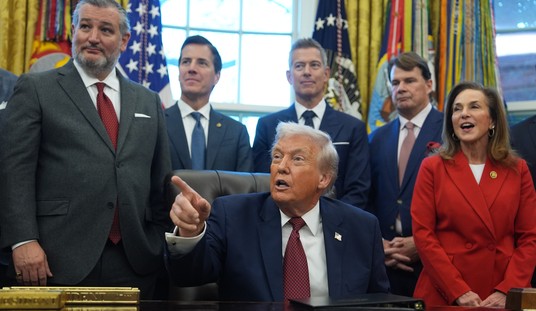Every now and then, you’ll see an optimistic headline declaring that the entrepreneurial spirit remains strong among our young people. Gallup produced a widely-cited poll along those lines in January, declaring that 43 percent of young people still plan to start their own business. That’s actually down 2 points from 2011, but it was still described as a “high and stable” level of entrepreneurial aspiration.
The problem is that Gallup polled students in the 5th through 12th grades. When the online career network AfterCollege performed a survey of twentysomething students, in coordination with a research firm called Millennial Branding, they found over 60 percent of respondents said they weren’t interested in starting their own company in the next few years, while only 8 percent described themselves as “very” interested. Almost half of the students responding to the survey had not been to a job interview in the past six months, so their outlook on working for someone else was also fairly grim.
The difference between the Gallup and AfterCollege surveys is the difference between the boundless optimism of youth, and the more enervated outlook of slightly older students who find themselves disappointed in the job market. They have a hard time imagining themselves accepting the risk and expense of launching their own business. Unlike the political class, they seem to have gained some appreciation for just how difficult running your own business can be. Among the most dangerous delusions of the political class is the conviction that starting and running a business is easy, which is one reason politicians are eager to stir up class resentment against successful entrepreneurs and their “unfair” profits – achieved after years of risk, hard work, and sacrifice the political class doesn’t like to discuss.
The waning of the American entrepreneurial spirit is very bad news. It is often said that small business is the engine of American job creation. Why is that the case? Why can’t big corporations, or Big Government, create the jobs we need?
On Monday, the Wall Street Journal collected some illuminating remarks from successful entrepreneurs, including the co-founder and CEO of T2 Venture Capital, Victor W. Hwang. His advice was to “head into the weird places,” watching and listening to weird stuff, walking in weird places, and talking to weird people. This is a colorful way of describing the sort of unconventional innovation that small businesses excel at. Larger operations, especially the government, are less interested in heading into weird places. Government responds to appeals from well-connected interests and large, organized groups.
Our vast, competitive, unruly network of small businesses represents a vast distributed intelligence – a system which excels at finding local opportunities that could be missed by large, centralized operations. There are positive incentives for growth and centralization over time, as great economies of scale can be enjoyed by corporations with great purchasing power and vast industrial resources. But the initial discovery of opportunity is more often the province of individuals and small companies, willing to take risks in the pursuit of an unconventional vision. Small businesses blanket America with millions of eyes and ears, forever in search of demands that can be fulfilled at a profit.
The failure of central planning, everywhere from the Soviet Union to Barack Obama’s Washington, is the great untold story of the past century – “untold” because the media in charge of telling that story is still in love with notion of Great Men doing Great Things on a national scale. The competition between central planners and risk-taking small businessmen was never a fair contest, because the “best and brightest” huddled in their lavishly funded Washington enclaves have always been hopelessly outnumbered. How could they fare better than a vast army of competitors spread across every square mile of America, testing a thousand strategies in the time it takes for some Washington agency to read the minutes from its last meeting? How could any remote authority match labor resources to profitable demand as efficiently as a multitude of small operations with intimate knowledge of their local customer bases and labor pools?
Big Business and Big Government seek to write history. Entrepreneurs doodle endlessly in the margins. In the Wall Street Journal roundtable, Guy Kawasaki of Apple said “one thing that isn’t a rich vein of entrepreneurship gold” is ” reading a market forecast from a big-name consulting firm and deciding to create a product to serve that need.”
Small businesses rise and fall, creating a stormy sea of jobs that might, regrettably, not last forever… but those jobs provide both valuable work experience and the resources for new entrepreneurs to take their shot at opening a business. Vivek Wadhwa of Singularity University conducted research in 2009 that determined “the average age of a successful entrepreneur in high-growth industries such as computers, health care and aerospace is 40. Twice as many successful entrepreneurs are aged over 50 as under 25, and twice as many over 60 as under 20.” Perhaps those twenty-something college students are correct to believe they won’t be starting their own businesses within the next few years… but they clearly have urgent need of the job experience that would make them well-positioned to create their own companies in 10 or 20 years. They also need to accumulate the cash and credit necessary to embark upon entrepreneurial adventures.
If small business is the engine of job creation, it follows that a healthy economy would do everything possible to encourage small business creation. That’s not the same thing as empowering vast, hidebound bureaucracies to subsidize politically approved business ventures. Even the most well-meaning bureaucrat would be hard-pressed to keep pace with the cycle of risk, achievement, and failure that drives entrepreneurial efforts. No, the government needs to get out of the way, removing the obstacles that separate people with vision and an appetite for risk from the opportunities they would pursue, and the resources – most definitely including the human resources – they require.
And we want our young people to dream of not only the creativity and risk associated with entrepreneurial adventure, but also the rewards of success. The last thing they need is a tedious lecture from a politician who assures them, “You didn’t build that. Someone else made that happen.” They don’t need to see ambition ritually denounced as selfish greed. They don’t need lectures about how little folk like themselves are the hapless prey of huge, predatory interests that can only be held at bay by maternal, protective government. In an environment where success is feared and envied, is it any surprise that few people want to undertake a difficult and perilous quest to secure it?
Do you want jobs, America? Then you need employers. They are only found along the road to profit; they have no interest in pursuing any other path. The road to profit branches off in many unexpected directions. Entrepreneurs are cartographers of the unexpected.














Join the conversation as a VIP Member